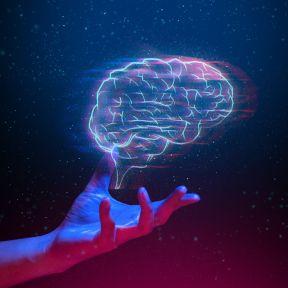KEY POINTS-
- The mind-body is one interconnected system and is your subconscious.
- Cellular communication is massively complex allowing connection and influence from every part of the system.
- This model suggests that the reciprocal effects of mind and body are underrecognized and often ignored.
It is tempting to think of the mind and body as separate entities, especially if you equate the mind with the brain. But the issue of the relatedness of the brain and mind with the body has become more apparent as numerous professionals try to come to grips with the potential dangers of artificial intelligence.
It's seemingly natural to consider intelligence as simply a matter of cognition, and the consequent ability to reason logically, thus seemingly assigning intelligence specifically to the brain. However, this assumption is increasingly coming under scrutiny from both a philosophical and scientific perspective.
In 1967, Hubert Dreyfus, a philosopher at Cal-Berkeley, wrote a paper entitled, “Why Computers Must Have Bodies in Order to Be Intelligent.” Dreyfus argued that intelligence was not merely a function of reasoning ability but more importantly a function of experience. His reasoning was that our knowledge and intelligence come from our experience of the world first, and that disembodied ideas were secondary to that experience:
All research is built upon two interrelated assumptions, both of which are false. First, that intelligence fundamentally is information processing (i.e., the manipulation of context-free symbols according to formal rules or algorithms); and second that everything knowable about the world can be rendered in terms of discrete, independent representations.
Fast forward 30 years and renowned neurobiology researcher Candace Pert wrote Molecules of Emotion, in which she showed how many cells throughout the body contribute to the sensing and communication of feelings.
Advances in Cellular Communication
The movement toward a more interconnected mind-body was enhanced even more when Jon Lieff published The Secret Language of Cells: What Biological Conversations Tell Us About the Brain-Body Connection, the Future of Medicine and Life Itself in 2020. In this book, Lieff shows the incredible communication between all cells in the body. To focus cognition study on the brain is too simplistic. Lieff describes how some cells communicate wirelessly, and others show quantum properties. These discoveries suggest that the impact of cells throughout the body is much more influential in all processes, including thinking. The body is essential to intelligence.
There are several implications of this interconnectedness. If there is one massively integrated system, not only does the body have an impact on the mind, but the mind also has an impact on the body. Indeed, this integrated mind-body system is your subconscious.
The Mind's Influence on the Body
I have known six people who were told they were about to die and seemed to recover miraculously. One of these cases is described in a book I co-wrote with Barbara Morello-O’Donnell called In God’s Waiting Room.
Barbara contracted the H1N1 virus in 2009 and was in terrible shape. Her heart was failing, and she was in desperate need of a heart transplant. She was put in a coma for two weeks. When she awoke from the coma, she recalled several dreams while comatose. Initially, they seemed to represent perceptions of what was happening to her while in a coma. For example, when she was being cardioverted, she “dreamt” that she was driving down a highway desperately looking for electricity. However, I also thought that some of her dreams were about resolving some of the issues in her life. She was also told by an angelic figure that her heart would be healed.
When Barbara awoke from her coma, her cardiologist was naturally anxious to determine how much more her heart had deteriorated and how much time they had to find a transplant. He immediately ordered cardiac imaging. Shortly after the imaging, he came back into Barbara’s room and announced, “I can’t explain this, but you have a heart of a 20-year-old. It’s very healthy and actually a heart we would absolutely use for a transplant.”
All of the six people I know with stories like this did not accept their fatal prognoses. They pursued alternative means of treatment with a passionate belief and hope.
If thoughts and beliefs can impact physical processes, and potentially the effects of illness and disease, more emphasis needs to be placed on this in the medical treatment of any physical condition. I think that if someone is told that they have three months left to live and they believe it, they will indeed die within that timeframe.
This also affects research on medications in which a control group of people is given “placebos.” If people given the placebo believe firmly that this will help, there’s a decent chance it will. And if those given the pill have no faith that it will work, it probably won’t. In that sense, a “placebo” is not a fake treatment. It’s a nonpharmaceutical one, but still potentially powerful.
Several years ago, if I had read this, I would have considered it more than a bit “woo-woo.” However, the latest research on the amazing communication between mind and body suggests that not only such effects are possible but are beginning to define how such communication happens.
Combining Artificial and Human Intelligence
This discussion also has ramifications for artificial intelligence. Full disclosure: I am the science director at IntualityAI, a predictive analytics company that has had great success in predicting outcomes across numerous fields: financial markets, sports, and health applications, to name a few. IntualityAI combines human heuristics like intuition with any data streams to do something that until now AI on its own cannot do successfully: make predictions.


